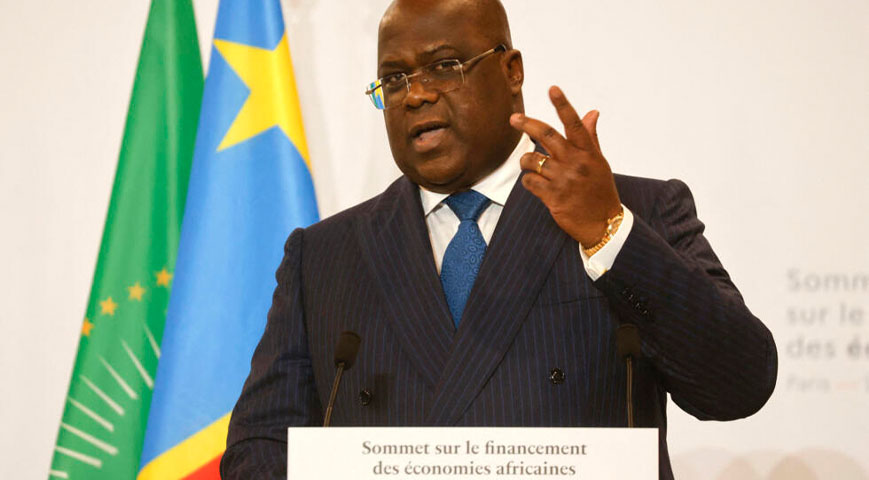The Constitutional court in the Democratic Republic of Congo on Tuesday rejected two legal challenges to the provisional results of a contested presidential election last month. It declared President Felix Tshisekedi the final winner.
The verdict paves the way for Tshisekedi to serve another five years as head of Africa's second-largest country.
The Court validated the incumbent's victory despite independent observers' reports of widespread irregularities during and after the December vote that have led the main opposition candidates to call for a re-run and allege fraud.
A convoluted tabulation method, last-minute voting extensions, and logistical errors have fueled ongoing disagreements that threaten to destabilize the mineral-rich but impoverished nation further.
Out of the eighteen opposition presidential candidates, Theodore Ngoyi was the only one to file a lawsuit after Tshisekedi's provisional results showed that he had received more than 73% of the vote.
Did you read this?
Additionally, one resident appealed.
Main rivals of Tshisekedi, including as Moise Katumbi, the runner-up, have declined to contest the vote total in court, claiming a lack of faith in public institutions.
"Our position remains the same: we did not witness credible elections," opposition candidate Martin Fayulu said after the verdict.
"We reject the results announced without basis by the Constitutional Court," he said, adding that Tshisekedi had no legitimacy.
Katumbi spokesman Herve Diakiese accused the court of covering up cheating and fraud with a "legal varnish".
The Constitutional Court ruled on Tuesday that irregularities could not have impacted election results because there was such a big gap between Tshisekedi and Katumbi, who won around 18% of votes.
"Even when taking reported irregularities and their influence on the ballot into account, the order of arrival is not disrupted," the court's president, Dieudonne Kamuleta, said.
He added that Ngoyi, who received about 0.02% of the vote, lacked proof to support his allegation that the counting procedure had compromised the fairness of the voting process.
Ngoyi expressed regret that this "shameful situation" was not addressed by electoral legislation.
The opposition had earlier demanded that the election be canceled due to "massive fraud" and asked that the world reject the preliminary results.
The government and the electoral commission have said the election was free and fair despite the irregularities and rejected demands for a full re-run.









